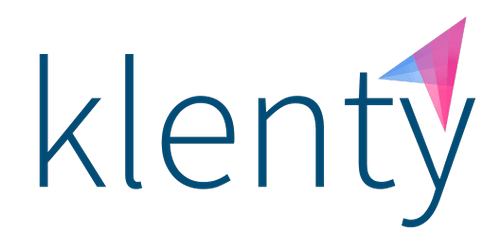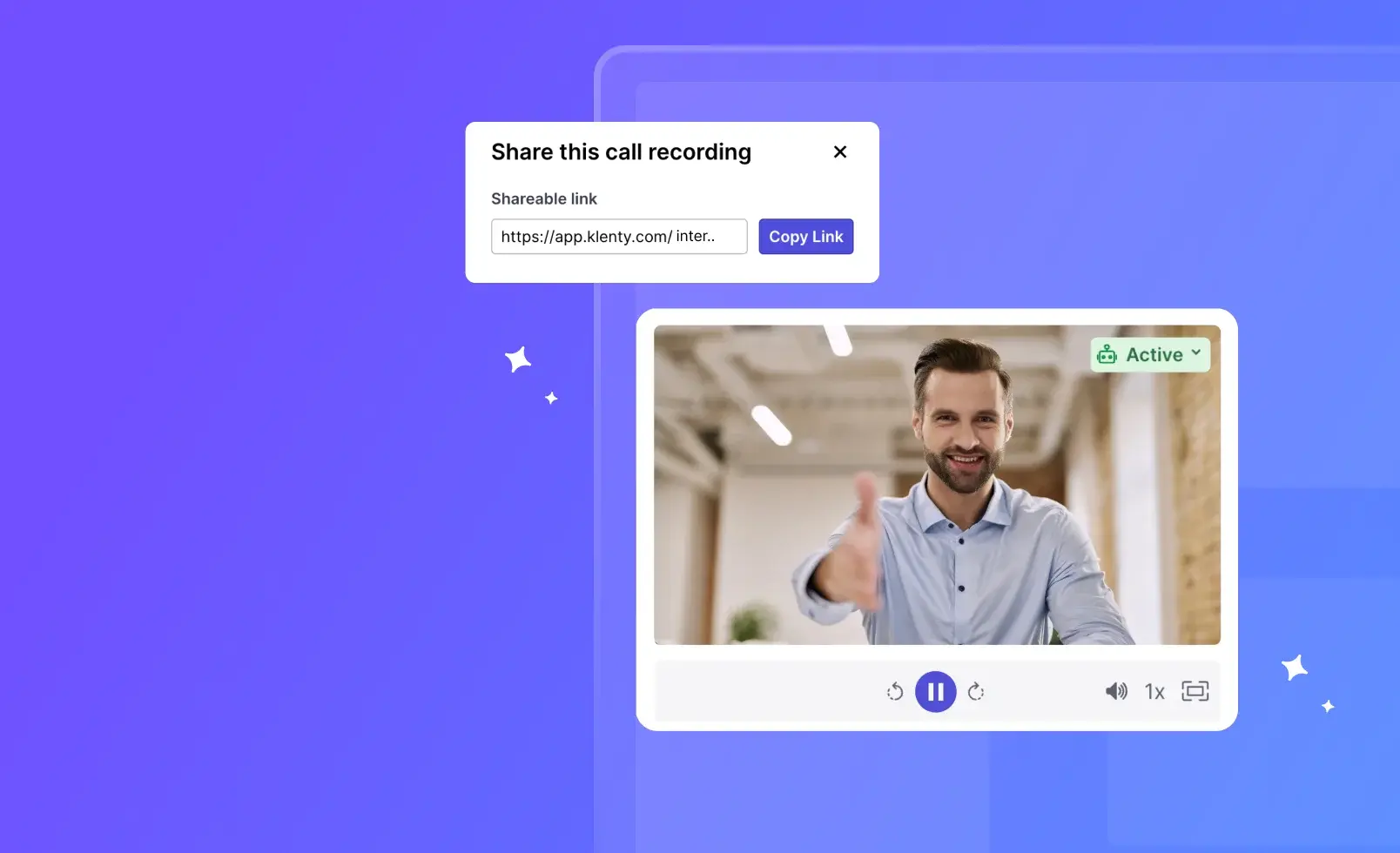Sales calls are jam-packed with information about prospects’ pains and concerns.
And sales reps take vigorous notes to jot them all down. But it’s tedious when they have to juggle note-taking with fully interacting with prospects.
This is where conversation intelligence platforms come in.
These platforms record, transcribe, and summarize every call, so reps can refer to them later and focus on the prospect when speaking with them.
However, recording calls without consent is an invasion of privacy and may cause legal complications.
The following section explores all the international laws your conversation intelligence software needs to follow.
Disclaimer: This blog is an attempt to simplify call recording laws from around the globe. This is not legal advice or a thorough outline of all the laws pertaining to call recording.
International Laws For Call Recording
Here are the various international guidelines for call recording.
United States
In the United States, there are two ways states approach call recording laws:
- One-party consent - Requires the consent from at least one party involved in the meeting. States that require one-party consent are Alabama, Alaska, Arizona, Arkansas, Colorado, Connecticut, District of Columbia, Georgia, Hawaii, Idaho, Indiana, Iowa, Kansas, Kentucky, Louisiana, Maine, Michigan, Minnesota, Mississippi, Missouri, Nebraska, New Jersey, New Mexico, New York, North Carolina, North Dakota, Ohio, Oklahoma, Oregon, Rhode Island, South Carolina, South Dakota, Tennessee, Texas, Utah, Vermont, Virginia, West Virginia, Wisconsin, and Wyoming.
- Two-party consent - Requires all parties to consent for the recording of a call. States that require two-party consent are California, Delaware, Florida, Illinois, Maryland, Massachusetts, Michigan, Montana, New Hampshire, Oregon, Pennsylvania, Washington, and Connecticut.
- Mixed Consent - States like Nevada, Vermont, and Oregon, offer ambiguous regulation or no regulation at all.
European Union
European Union’s General Data Protection Regulation (GDPR) states that you need to justify the need to record the call and get explicit consent from all parties before actually recording. You can consider this as a two-party consent state.
Companies must also mention when, where, and how the call is being recorded.
In order to record the call under GDPR, one of the following conditions must be met:
- Recording the call is of public interest and for official purposes
- The call is recorded to protect the vital interests of the participant or another party.
- The call must be recorded to fulfill some legal obligations.
- All parties have consented to the recording of calls for the stated purposes.
Additionally, participants have the right to request access to the recordings and request for erasure of the data.
Canada
Canada can be considered a two-party consent state as it requires you to inform participants about your intention to record the conversation and any purposes the recording may be used for.
Call IQ - Klenty's Conversation Intelligence Platform
Call IQ by Klenty is a conversation intelligence platform that transcribes, analyzes, and reports on all your audio and video calls.
In addition to transcripts, Call IQ provides four AI-driven summaries so you can review calls at a glance.
- Meeting Summary highlights all important moments in the call, providing an overview of the conversation at a glance.
- Questions Asked helps you identify the common objections posed during the call.
- Action Items record all the next steps discussed during the call, enabling you to always follow up with context.
- Sentiment gives you a collection of positive and negative sentiments during the call.
How Call IQ Helps You Stay Compliant With International Laws
1. Turn the bot on/off
You have the ability to turn your bot on or off based on your requirements. Unless the bot’s default setting is to join the call, you must enable the bot to join and record the call manually.
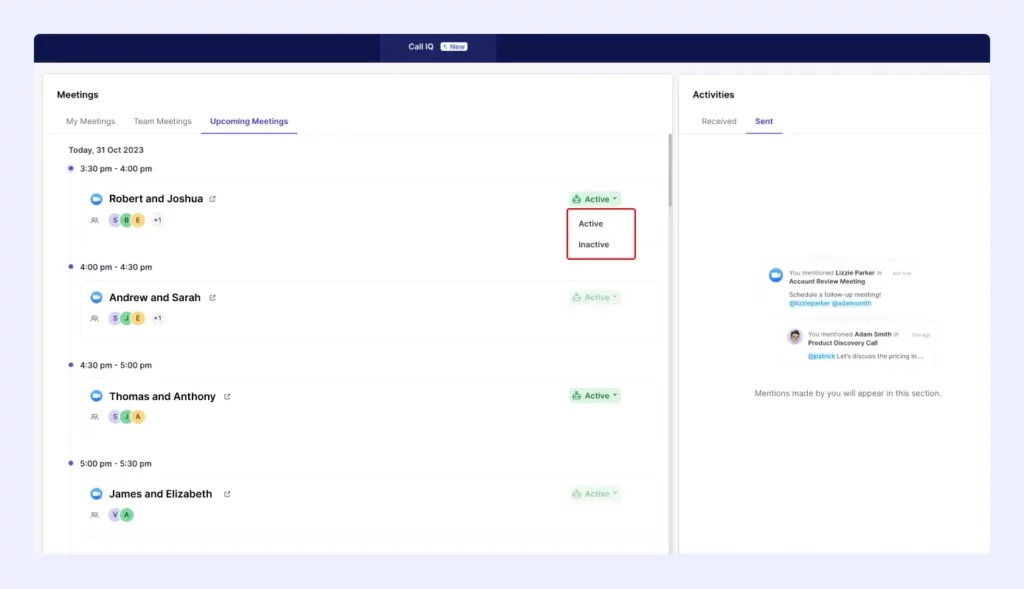
2. Bot always requests to join the call
When you’re on the call, Call IQ always joins the meeting as a participant. This way, your prospects are notified when the bot is on the call.
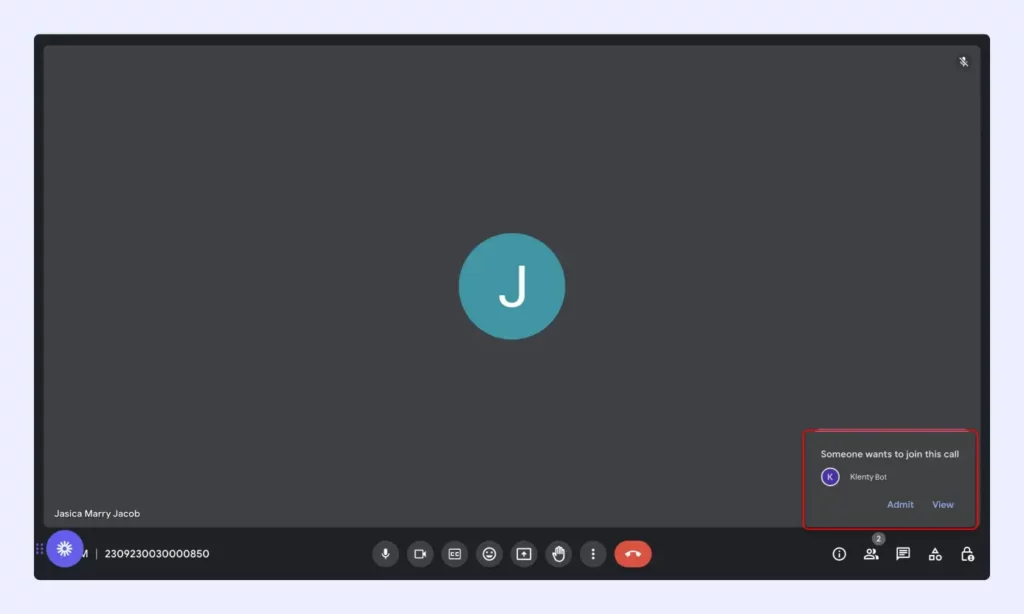
3. Recording links are private
All your calls are stored in Call IQ’s own database, and only you can access them. While sharing a recording with your prospect, you can choose if you want the link to be public or private. Additionally, you can also control how long your prospect can view the call recording.
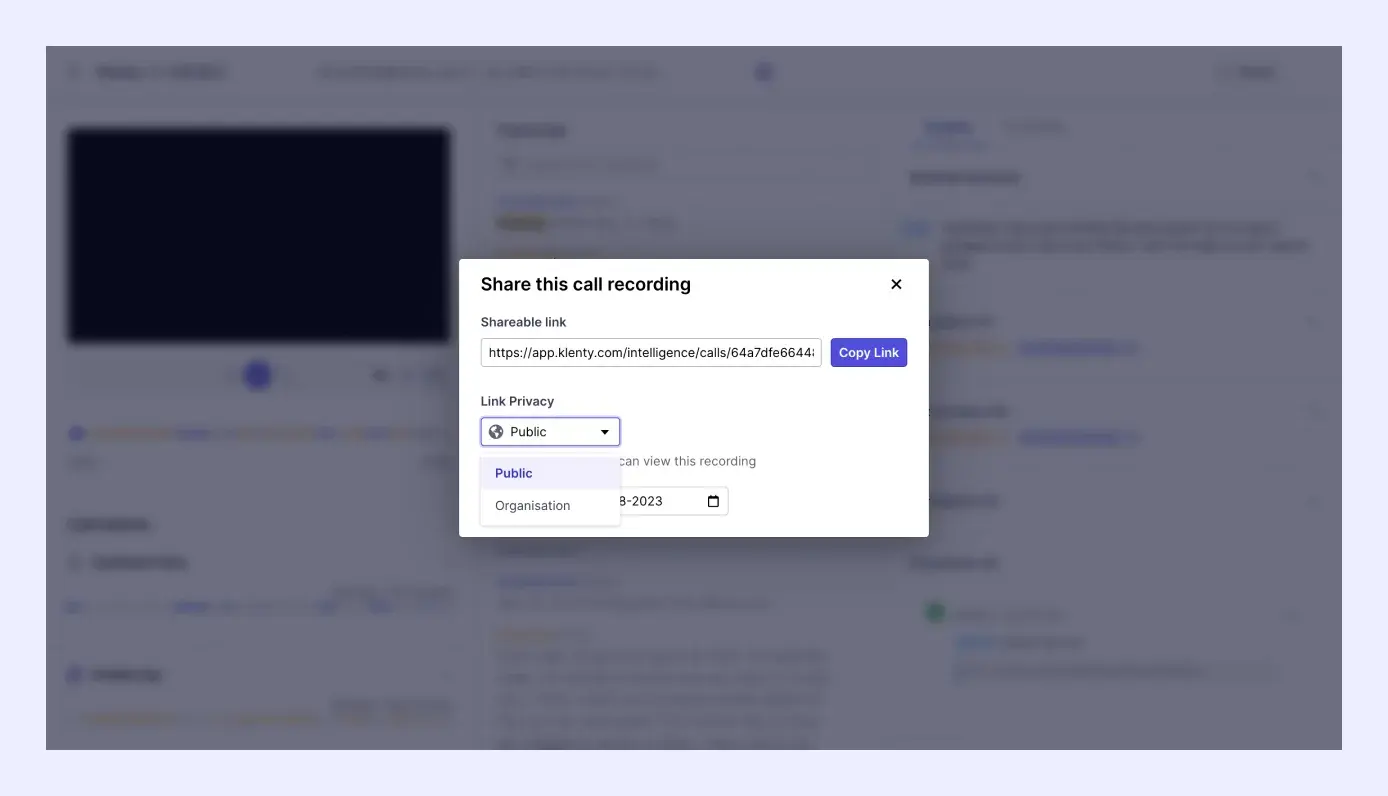
How Does Call IQ Protect Your Data?
Call IQ only records and stores conversations and meetings for your analysis. We prioritize the security and confidentiality of your data. Rest assured that your data will be handled with care and will not be utilized for any purposes beyond what’s agreed upon.
Our partnership with Microsoft Azure and Amazon Web Services (AWS) allows only single-tenant ownership, which means your data is housed on separate servers - kept independent of other customers. And your data cannot be used to train our models.
Record sales calls and meetings in adherence to international laws. Book a demo to see Call IQ in action now.
